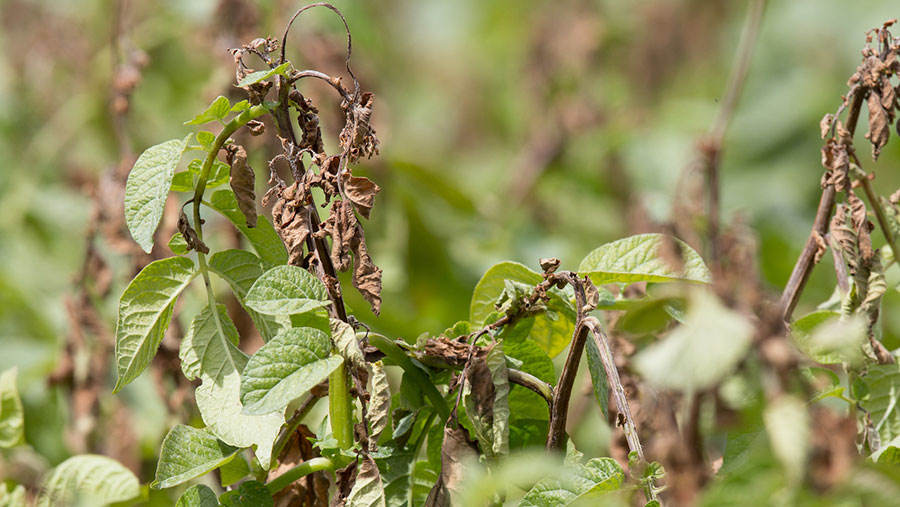Potato blight strain causes resistance concern with agronomists
 © Tim Scrivener
© Tim Scrivener The emergence of a new strain of late potato blight with signs of resistance to a popular fungicide is causing concern among agronomists who suggest switching to other products within an overall blight programme.
After five cases of the 37_A2 (Dark Green 37) strain were confirmed in the UK last year, largely in the English Midlands, it has spread this year to Kent, Shropshire, North Yorkshire, Cheshire and most recently Derbyshire.
See also: Fungicide resistance warning for new potato blight strain
Darryl Shailes, potato agronomist at advisory group Hutchinsons, said from only a handful of cases in 2016, there have been close to 20 confirmed cases this year.
“We don’t know where it will go next, but we do know it is at least as competitive as the dominant strains Blue 13 and Pink 6,” he said.
Although little is known about this strain of the potato industry’s most damaging disease, it has proved to be highly aggressive.
Frequent use
The popular blight fungicide fluazinam has been one of the most effective actives against the disease, but frequent use may have increased the selection pressure on the fungicide.
Mr Shailes and John Keer, agronomist for Richard Austin Agriculture Services, suggested there may need to be changes to the use of this fungicide in blight programmes.
“We need to look at not using fluazinam at the start and the end of the programmes. I don’t see that we can risk it when there is a new strain which we don’t know how dominant it will be,” said Mr Keer.
The strain has not been seen in East Anglia yet, but that can change, he added.
Both agronomists suggest making more strategic use of Infinito (propamocarb + fluopicolide) by bringing forward applications to the start of the season.
“It is the start of the season which concerns me most. The only time I’ve ever had trouble controlling blight is when it’s got in early and got away,” added Mr Keer.
He regards the first three sprays of a blight control programme as being very important so he will look to use propamocarb + fluopicolide here where possible.
